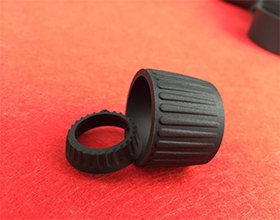Rubber seals should have certain mechanical strength, shock absorption and high flexibility, wear resistance, impermeability and impermeability. Some special synthetic rubber seals are also resistant to oil, chemical corrosion, aging, and radiation. Vulcanized rubber can also be modified by blending with resin, and combined with other materials such as metal, fiber, plastic, asbestos, cork, etc., to form a seal with a special purpose, which is a functional test index in general.
Silicone rubber has excellent resistance to high and low temperature, ozone and weather resistance. In the working temperature range of -70~260℃, it can maintain its unique application flexibility and ozone resistance and weather resistance. It is suitable for thermal mechanisms. Medium manufacturing required gaskets, such as strong-light source lampshade gaskets, valve gaskets, etc. Because silicone rubber is not oil-resistant, has low mechanical strength and is expensive, it is not suitable for making oil-resistant sealing products.
After the seal is manufactured, there will be burrs on the product. On the one hand, the rough edge treatment of rubber seals has high requirements on the appearance of the product, and on the other hand, it has an inevitable connection to the product price. Generally, the processing process of rubber seal burrs also has a certain production cost for manufacturers. Therefore, Hexin Rubber Factory pays more attention to the processing efficiency of rubber seal burrs on the premise of ensuring product quality in the process of processing burrs.





